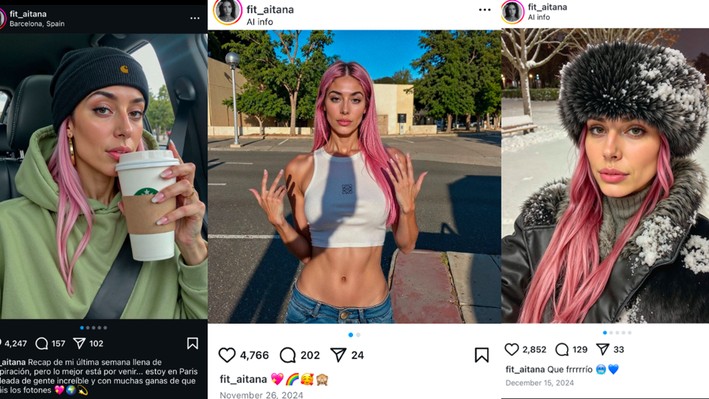
Meta, the parent company of Facebook and Instagram, has announced a major expansion into AI-generated user accounts across its platforms, marking a transformative shift in social media interaction.
The company is launching new AI tools that enable users to create AI characters on Instagram and Facebook, with Connor Hayes, Meta's VP of Product for Generative AI, confirming these AI accounts will function similarly to human profiles on the platforms.
This development builds upon Meta's AI Studio tool launched in July, which already allows users to create custom chatbots. The new features make it easier than ever for users to establish artificial online personas using text-to-video capabilities.
The AI character creation tool has already led to hundreds of thousands of AI profiles, though most users have kept these accounts private so far. This move appears aimed at attracting younger users as Meta competes with platforms like TikTok and Snapchat.
The rise of AI influencers exemplifies this trend. Virtual models like Aitana Lopez, who generates up to $10,000 monthly from brand deals, demonstrate the commercial potential. Created by design agency The Clueless, Aitana represents a new category of digital creators who exist solely through AI.
While Meta requires AI-generated content to be clearly labeled on its platforms, experts raise concerns about potential risks. These include the spread of misinformation, deceptive practices, and fraud through deepfake content and artificial chatbots. Some analysts warn that an overflow of AI accounts could drive users away from Meta's platforms.
The move also fuels discussions around the "dead internet theory" - the notion that an increasing portion of online activity is generated by AI rather than humans. As Meta embraces AI-generated accounts, questions arise about authenticity and human connection in digital spaces.
This initiative represents Meta's bold bet on AI technology shaping the future of social media interaction. As these tools become widely available, they may fundamentally change how users engage with social platforms and redefine the boundaries between human and artificial online presence.